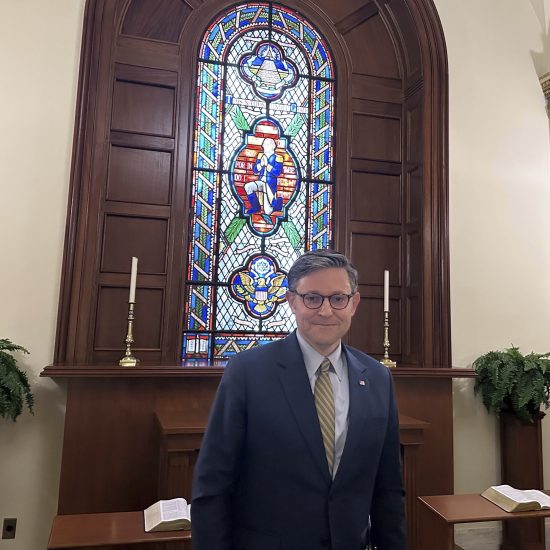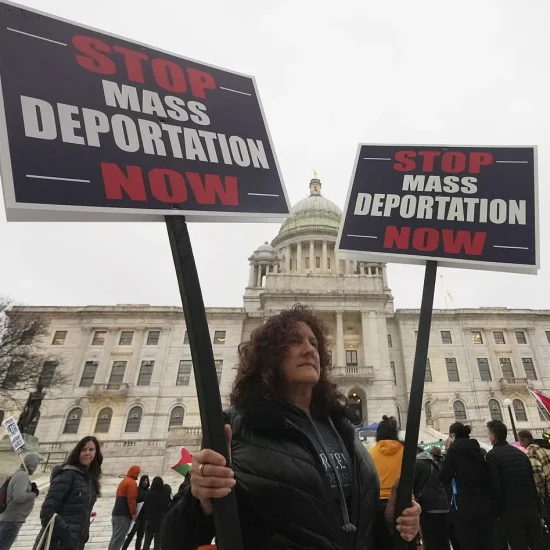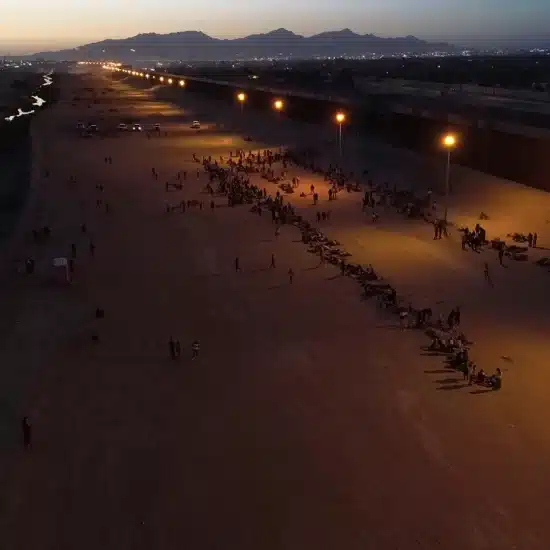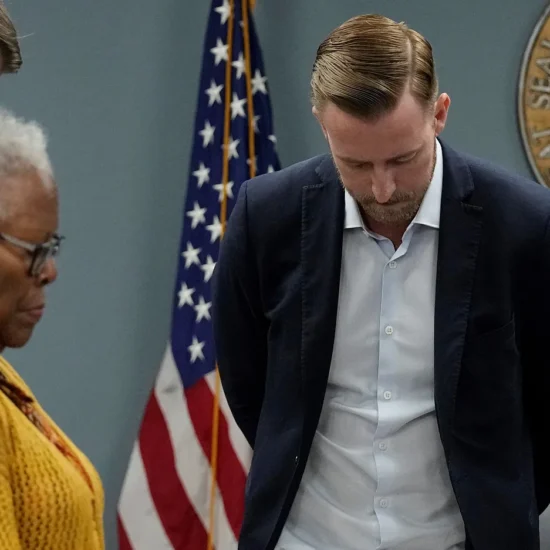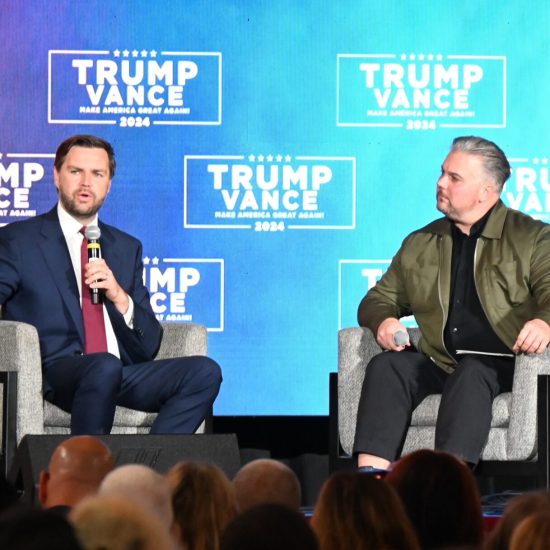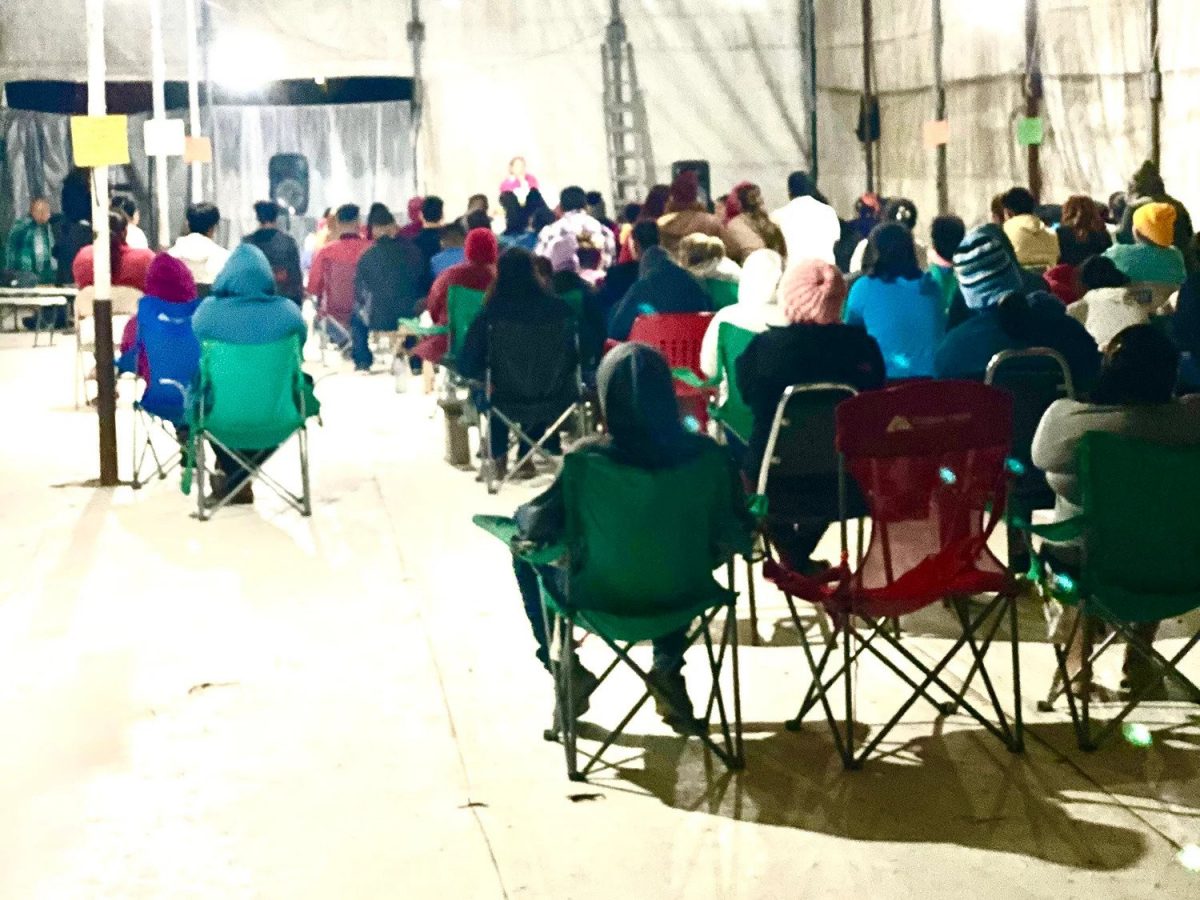
(RNS) — Among those praying for the outcome of the 2020 presidential election is a group of asylum-seekers at an encampment in Matamoros, Mexico, right across the border from Brownville, Texas. More than 200 asylum-seekers, most from Central America, held an all-night prayer vigil on Tuesday (Nov. 3), asking God to watch over the 2020 presidential election in the United States, said Alma Ruth, founder of the Texas-based Practice Mercy Foundation.
“Their lives and the lives of the children depend on the outcome of the election,” said Ruth.
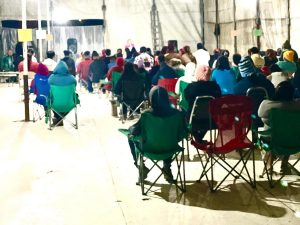
People gather together for an all-night prayer vigil organized by evangelical Christians at a camp for asylum-seekers in Matamoros, Mexico. (Alma Ruth/Religion News Service)
Ruth, a cross-cultural evangelical missionary from Mexico now based in Texas, said several evangelical pastors who are asylum-seekers in the camp organized the prayer vigil, which ran from 8 p.m. on Tuesday until about 5 a.m. on Wednesday.
She said many of the participants had fled from violence in Honduras, Nicaragua, Guatemala, El Salvador, and other countries. They hope to find refuge in the United States but, for now, have to wait in Mexico under the Migrant Protection Protocols put in place by the Department of Homeland Security earlier this year.
Known as the “remain in Mexico” policy, the protocols require asylum-seekers to stay outside of the United States while their case for asylum is heard. As many as 60,000 people are waiting in Mexico under the new policy, according to the New York Times. The U.S. Supreme Court agreed in October to hear a challenge to the policy.
More than 600 people are in the encampment in Matamoros. Ruth said there is no running water or electricity and that basic necessities are in short supply. She has been visiting the camp over the past year, bringing diapers, and other supplies for mothers with young children and spending time praying with residents. Her main mission, she said is to pray for women and children in the camp.
“I mean no offense to our brothers in the faith,” she said. “But if a woman loses hope, the world will fall apart.”
According to Ruth, many of the women in the camp are conservative evangelicals. Yet, she said, many evangelicals in the United States seem unconcerned about their welfare. She fears churches in the U.S. avoid talking about immigration because “that’s considered political involvement.”
About two-thirds of white evangelicals see immigrants as “a threat to American traditions” and “invaders,” according to the Public Religion Research Institute. Yet, those same evangelicals are also open to comprehensive immigration reform.
Whatever the outcome of the election, Ruth hopes churches will become more concerned about the asylum-seekers in Mexico and about immigration reform.
Ruth, a Pentecostal Christian, believes politics have led some churches to ignore the New Testament call to help their fellow believers, including those like the Christian women and children in the Matamoros camp.
“We have forgotten what the gospel says about the good news of Jesus,” she said.


